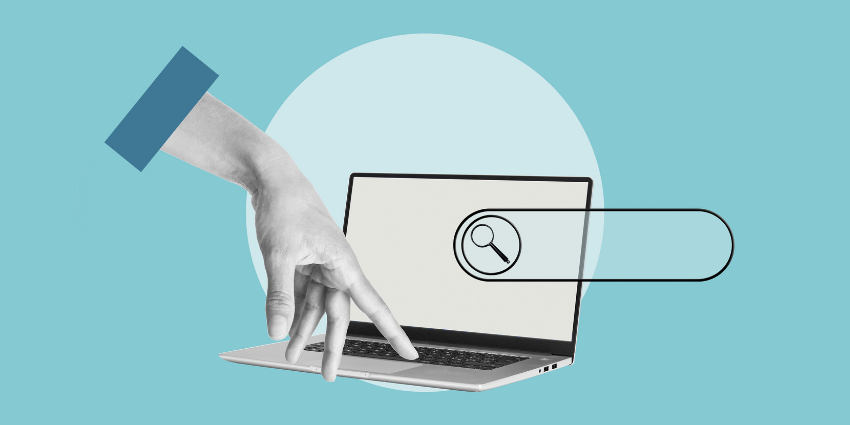Thanks to the rapid development of more advanced AI algorithms, the opportunities for AI in healthcare are growing fast. Intelligent systems are becoming increasingly sophisticated and capable of completing human tasks efficiently and quickly.
Various forms of artificial intelligence are improving the lives of hospital administrators, doctors, and patients alike in the healthcare landscape. Healthcare represents one of the fastest-growing and most lucrative sectors for AI. By 2032, experts predict the market for AI in this sector will be worth over $490.96 billion.
While there are challenges to overcome, such as concerns about ethics and data security, AI has the potential to revolutionize the medical landscape. Here’s everything you need to know about how AI transforms healthcare.
What is AI in Healthcare? The Basics
AI in healthcare refers to using artificial intelligence concepts like machine learning, deep learning, and natural language processing to streamline tasks and improve patient and healthcare professionals’ experiences. AI has helped healthcare and medical leaders conduct more efficient research, manage resources, and support patients for a while.
However, artificial intelligence’s impact on the healthcare market has grown significantly in recent years, thanks to the development of new, more advanced technologies. With better machine learning algorithms, cheaper hardware, and greater access to data, the pace of change in the healthcare landscape is accelerating.
Organizations are leveraging newer solutions, like generative AI, to enhance patient experiences, manage data, and optimize drug development. On a broad scale, AI in healthcare can assist organizations in interpreting and processing medical data, streamlining diagnoses, and delivering efficient, personalized patient care.
The Benefits of AI in Healthcare
The benefits of AI in healthcare are still being discovered. Healthcare organizations worldwide are already using AI to improve the efficiency of various processes, from patient care to back-office tasks. Just some of the biggest benefits include:
- Enhanced patient care: Integrating AI into clinical workflows can help healthcare providers access valuable insights when making care decisions. The right tools can enable the delivery of personalized care and support, leveraging both real-time and historical data.
- Error reduction: Mistakes can be disastrous in the healthcare industry. AI can help to improve the accuracy of everything from drug development to data management. One study even found AI-driven decision making tools can reduce errors in drug management.
- Reducing costs: AI can help to minimize costs across the healthcare industry in various ways, from reducing medication errors, to automating certain aspects of patient care. It can even help with fraud prevention, and streamlining administrative workflows.
- Improved patient engagement: Many patients have questions about their care outside of clinical business hours. AI can provide around-the-clock support through chatbots and intelligent assistants. It can also help flag cases that require additional clinical review.
- Enhanced employee performance: In the healthcare industry, AI solutions can support surgeons and doctors with access to real-time data and personalized training. It can also minimize dosage errors and automate repetitive tasks, improving efficiency.
AI in Healthcare: Current Use Cases and Examples
In the years ahead, advanced AI solutions will help healthcare organizations to discover new ways of improving efficiency, minimizing risk, curing diseases, and supporting patients. Already, there are various use cases and examples that demonstrate how AI is revolutionizing healthcare.
1. Transforming Preventative Care
One of the biggest benefits of AI in healthcare is that it can help government groups and facilities implement proactive strategies to help people stay healthy and avoid disease. Preventative services constitute around three percent of the overall US healthcare spending budget, and AI will empower organizations to deliver more personalized, valuable insights to citizens.
With AI tools, organizations can create medical alerts and messages they can send specifically to consumers who are more likely to suffer from common chronic conditions like asthma, hypertension, or diabetes, offering them insights into how they can reduce their risks.
AI solutions can detect when patients need to book appointments or screening consultations based on their age or medical history, enabling earlier detection. AI can even more effectively detect subtle signs of impending diseases or conditions in blood tests and other tests conducted by medical experts. The use of AI is enabling faster mammogram reviews in the US, with 99% accuracy.
Plus, AI increases medical professionals’ ability to understand the needs of the patients they care for, making it easier for organizations to collect and process large volumes of data.
2. Maximizing Medical Imaging
Medical imaging is another critical application area for AI in healthcare. AI algorithms equipped with machine learning and computer vision capabilities can quickly analyze medical images with exceptional accuracy. They can process CTA scans, MRIs, and X-ray data and pinpoint potential anomalies that even trained medical professionals might miss.
Many healthcare leaders are already using artificial intelligence in medical imaging to improve the speed and efficiency of identifying issues and diseases. AI-powered algorithms can identify lung nodules or signs of tuberculosis in CT scans. They can analyze X-ray images for osteoporosis or evidence of bone thinning.
Some organizations even use AI algorithms with deep learning capabilities to help identify early-stage issues, like impending tumors or Alzheimer’s disease, in at-risk patients. Even the NHS in the UK relies heavily on AI for cancer screening and diagnosis.
3. Data Collection and Analysis
In all industries, AI solutions excel at gathering and processing large volumes of data. Data is the key to delivering exceptional patient care, finding the cause of diseases, and developing treatments in the healthcare industry.
AI has the potential to help healthcare organizations gather and share information more effectively. For instance, around 11.6% of the US population has diabetes, but healthcare organizations have often struggled to collect extensive and up-to-date information on the condition. With AI, patients can use wearable devices to share instant feedback about their condition with their medical team.
AI can help providers leverage that data to understand how diabetes affects different types of patients and develop better treatment options. Generative AI can even help enhance the efficiency of information collection by summarizing data for healthcare providers.
This can save research teams hours processing huge volumes of reports and attempting to extract insights from data shared by thousands or millions of patients.
4. Optimizing Diagnosis
According to Harvard, although the use of AI for diagnostic practices is still in its early days, the technology could improve health outcomes by 40% and reduce treatment costs by 50%. AI can accelerate the diagnosis process, capturing information and insights about patient conditions that would otherwise be missed, even by the most advanced medical professionals.
Innovative solutions are already emerging to help specifically with this use case. For instance, IBM’s Watson solution for the Health industry helps organizations apply cognitive technology to large amounts of data to enhance diagnostic practices.
Elsewhere, the MIT group developed a machine learning algorithm that can assess data and determine when follow-up is necessary through a medical expert. Studies have shown that AI might be more effective at delivering early diagnoses than human professionals.
According to one report, an AI system was more effective at recognizing the early signs of skin cancer than experienced doctors. Artificial Intelligence could be the key to faster, more efficient, and more accurate diagnoses in the medical industry.
5. Enhancing Drug Discovery and Development
The drug development and pharmaceutical industries today are overwhelmed by skyrocketing development costs and lengthy research processes. Simply putting a single drug through clinical trials can cost an average of $1.3 billion, and only around 10% of those drugs are delivered to the market.
AI can support enhanced drug discovery and development in various ways. First, AI algorithms can use huge volumes of historical data to help facilitate the research process, assisting developers in the discovery of molecules and solutions that serve a range of valuable purposes.
Companies can use AI systems to simulate the effects of different treatments and identify which solutions will have the best outcomes, minimizing risk. AI systems can even predict potential side effects for different drug combinations, and help identify ideal candidates for clinical trials.
While AI won’t completely eliminate the need for comprehensive research and testing, it will accelerate treatment development.
6. Improving Treatment Options
AI in healthcare can enhance treatment options in various ways. AI solutions can analyze a patient’s genetic information, medical history, and even lifestyle factors to predict disease risks and suggest tailored options for preventative and reactive treatment.
It can help medical professionals choose the most effective drugs for patients based on their genetic information and assist in selecting the right dose of medication. AI solutions can even identify errors in how patients administer medication themselves. For instance, one study found that 70% of patients don’t take insulin as prescribed for diabetes.
AI solutions can flag issues with patients’ medication use and provide access to real-time feedback that can improve recovery rates. AI algorithms combined with IoT can even track the progress of conditions in real-time. They can monitor vital signs and alert doctors when intervention is necessary, preventing unnecessary complications.
7. Augmenting Patient Experience
In virtually every industry, artificial intelligence is positively impacting customer and user experiences. AI in healthcare has the potential to revolutionize how healthcare providers support their patients. Conversational AI bots and generative AI solutions can support communications with patients, deliver appointment reminders, or automate booking processes.
Artificial intelligence solutions can also help keep patients engaged and informed. Around 83% of patients say poor communication with doctors is the worst part of their healthcare experience. With AI, doctors and nurses can keep patients up-to-date with tips on managing their health, automated insights into test results, and advice.
Healthcare organizations can even build chatbots and virtual assistants into their apps and websites. These bots can walk patients through the process of self-administering treatment, or making payments. This not only enhances patient experience, but improves efficiency in the medical landscape too.
8. Improving End of Life Care
People today are living longer than we did just a few years ago. While this is a positive thing, older age comes with a wide range of unique challenges to overcome, including increased risk of heart failure, dementia, and osteoporosis.
Robotics and AI have the potential to revolutionize “end-of-life” or senior care practices. Robotic systems, for instance, can help individuals stay independent for longer by helping them complete various tasks or track their own conditions with wearable devices, reducing the need for care homes.
AI solutions are already assisting patients with dementia. Bots can learn patient routines and offer care-giving suggestions to experts. AI-powered robots can even provide comfort and companionship to patients. For instance, the University of South Wales developed a robot named Viv using a large language model. This bot can communicate and interact with patients, keeping their minds and memories sharp.
9. Transforming Medical Training
Various innovations in the technology landscape have had a positive impact on training medical professionals, from extended reality, to automation. With AI in healthcare, educational leaders in the industry can develop personalized and intuitive training programs for all kinds of professionals.
With AI, companies can create natural simulations and guides for doctors and surgeons attempting to develop new skills. AI built into an extended reality application, such as a VR solution, can even provide real-time guidance and feedback to doctors as they complete training sessions.
Plus, the advent of natural speech recognition and AI’s ability to draw on large databases of scenarios means it can deliver personalized advice to trainees. AI systems can even learn from previous interactions with a trainee. This allows AI systems to continually adjust educational resources based on learning needs.
10. Reducing Fraud Risks
Although cutting-edge AI can present some challenges in terms of governance and security, the right intelligent solutions can also improve patient safety. AI in healthcare can help businesses detect fraudulent activity faster. It can scrutinize vast billing and medical data, searching for patterns and irregularities.
AI tools can establish baseline behaviors and flag deviations instantly, helping to rapidly detect everything from overbilling to unnecessary procedure requests. They can also cross-reference data from various sources to uncover connections that would go unnoticed.
AI can help healthcare systems avoid financial losses and improve patient experiences by allowing companies to take a proactive approach to fraud mitigation.
11. Robotics and AI in Healthcare
Finally, we’re still in the early days of uncovering the benefits of AI-powered robotic systems in healthcare. Some organizations are already using AI tools for preventative maintenance, using algorithms to track the performance of essential medical devices.
AI algorithms can analyze extensive data from medical equipment, identifying patterns that indicate potential failures. This enables healthcare leaders to proactively prevent unexpected breakdowns and downtime, reducing operational costs and improving patient care.
In the future, there may even be an opportunity to take Robotics in healthcare to the next level. Some healthcare organizations already use AI-powered robots to assist with everything from minimally invasive procedures to open heart surgery. Surgeons can control the mechanical arms and tools connected to a system to perform more advanced procedures at speed.
Some studies even show that robot-assisted surgeries can lead to fewer complications, such as infection, reduced pain, less blood loss, and quicker recovery times.
The Challenges of in Healthcare
Though there’s a lot of potential for AI in healthcare, it’s important to note that there are still challenges to overcome. One of the biggest issues early adopters face is ensuring they adhere to the right ethical, regulatory, and governance standards when using artificial intelligence.
Organizations already need to follow strict rules when it comes to managing sensitive patient data. Since AI solutions rely heavily on data to complete tasks, medical organizations will need to be cautious about which information they use for training. They’ll need to ensure they’re still protecting patient autonomy and adhering to regulatory standards.
At the same time, healthcare organizations will be required to ensure they’re using AI ethically and safely. Bias, discrimination, and various other AI issues can be particularly detrimental in the healthcare landscape, mainly if they affect the level of treatment given to different patient groups.
Ongoing concerns about AI in healthcare affect patients’ comfort with certain healthcare providers. A Pew Research Center survey found that 60% of Americans would be uncomfortable using a healthcare provider who relies too heavily on artificial intelligence.
The Future of AI in Healthcare
Today, AI already plays a vital role in healthcare, optimizing everything from drug discovery to patient care. As AI’s capabilities continue to evolve, the future for this technology seems bright. Going forward, AI can potentially increase patient safety, reduce human error, enhance treatment outcomes, and even reduce healthcare costs.
Plus, it will help to train and support the next generation of medical professionals. While there are still challenges to address, regarding AI safety, security, and governance, the opportunities for AI in healthcare are monumental.
AI tools will undoubtedly augment the healthcare landscape as we move into a future defined by more advanced algorithms, deep learning models, and robotics. The key to success will be ensuring that AI models are used carefully and safely alongside human experts.








